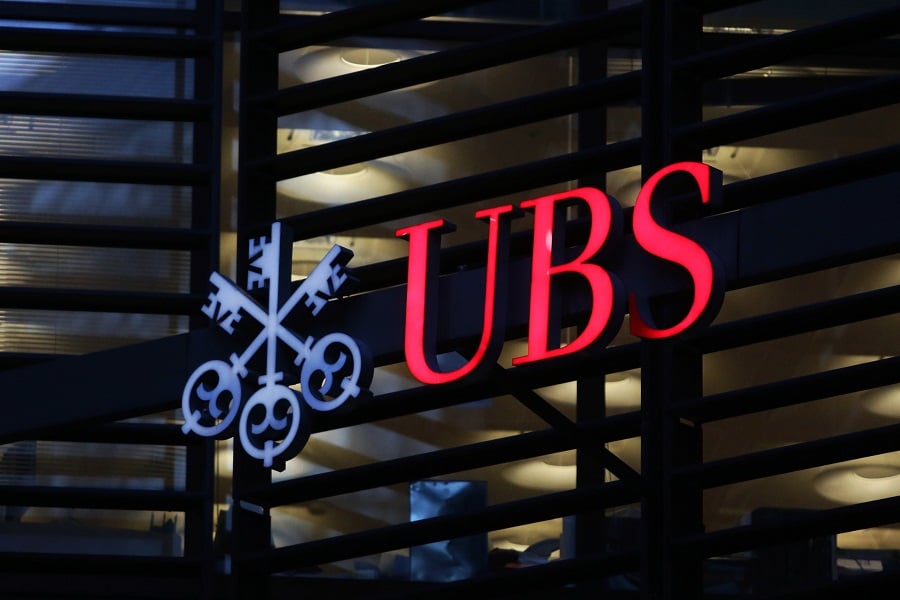

UBS lost two more Finra arbitration cases this week that centered on a complex options strategy that has made the firm the target of many customer legal actions.
A unanimous three-person Financial Industry Regulatory Authority Inc. arbitration panel ordered UBS Financial Services Inc. to pay $252,627 to Dennis and Nadine Ainbinder, trustees of the 1992 Ainbinder Family Trust, for losses they sustained on investments in a product called the Yield Enhancement Strategy, or YES.
The couple received $147,192 in compensatory damages, $60,677 in costs and $44,158 in attorneys’ fees, according to a July 18 award. In their arbitration claim, they sought compensatory damages between $1 million and $5 million.
A separate Finra arbitration panel unanimously awarded $210,000 in compensatory damages to the Richard G. Russell Jr. Revocable Living Trust, according to a July 19 award.
The YES strategy involves borrowing against a client’s account and using the proceeds to invest in options to generate higher returns. The risky product has been the cause of action in 38 arbitration cases that have been decided, with UBS winning 17 times and an award being given to customers 21 times.
Finra arbitration victories have been roughly evenly distributed between UBS and customer complainants, although the number of customer wins appears to be increasing over the last couple weeks.
Jacob Zamansky, the lawyer who represented Richard G. Russell Jr., said UBS falsely portrayed YES as a low-risk overlay on Russell’s bond portfolio.
Russell, a retired health care executive, started investing in YES in late 2017 while working with a registered representative in the UBS office in Century City in Los Angeles. Russell exited the strategy in late 2018 after sustaining a 20% loss, Zamansky said.
“I think it’s a terrific outcome,” Zamansky said of the Finra arbitration decision. “Our client received 100% of his losses, which shows that the arbitration panel believed that UBS misrepresented the downside risk of YES. UBS sold YES to Mr. Russell as a ‘non-directional’ and ‘market-neutral’ strategy, which we proved was a false statement.”
A UBS spokesperson declined to comment. Last month, UBS agreed to pay $25 million in a settlement with the Securities and Exchange Commission over charges that it defrauded clients who invested in YES.
The arbitrators in the Russell case denied a request by Scott Michael Rosenberg that the dispute be cleared from his registration records. Rosenberg, who was not named in the complaint, was the co-portfolio manager, Zamansky said.
The arbitrators disagreed over whether to grant expungement to Steven Westerman, Russell’s UBS broker, who also was not named in the complaint. Two of the three arbitrators voted in favor of removing the complaint.
“[Russell] was most certainly disappointed in the performance of his investments in the strategy sponsored by [UBS] known as YES,” Finra arbitrators Joseph Howard Cooper and Darrell Gene Smith wrote in the award. “While we are awarding damages against [UBS], we do not find that [Russell’s] financial advisor, Westerman, lied to him.”
But the arbitration panel chair, Cherie S. Lewis, said the compensatory damages make it impossible to rule that the claim of harm caused by the YES investment was false.
“It would be illogical and legally indefensible to award [Russell] the amount of $210,000 in damages from [UBS], while simultaneously expunging the record of [UBS’] employee who had the most frequent contact with [Russell] during the relevant time period,” Lewis wrote in the award.
Arbitrators rarely explain their decisions. This disagreement could influence future YES arbitrations.
“The expungement may lead other panels to reject expungement where substantial damages are awarded,” Zamansky said.

Canadian stocks are on a roll in 2025 as the country prepares to name a new Prime Minister.

Two C-level leaders reveal the new time-saving tools they've implemented and what advisors are doing with their newly freed-up hours.

The RIA led by Merrill Lynch veteran John Thiel is helping its advisors take part in the growing trend toward fee-based annuities.

Driven by robust transaction activity amid market turbulence and increased focus on billion-dollar plus targets, Echelon Partners expects another all-time high in 2025.

The looming threat of federal funding cuts to state and local governments has lawmakers weighing a levy that was phased out in 1981.
RIAs face rising regulatory pressure in 2025. Forward-looking firms are responding with embedded technology, not more paperwork.
As inheritances are set to reshape client portfolios and next-gen heirs demand digital-first experiences, firms are retooling their wealth tech stacks and succession models in real time.
